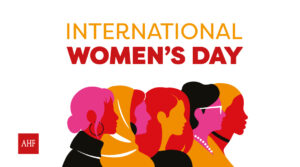The first drug against HIV developed in China and fully tested in the population of that country has published its latest results with clear success. According to the revealed data, the antiretroviral albuvirtide (whose acronym will be ABT) achieved an efficacy of 99% in 83% of the people participating in the study.
According to what was reported by the newspaper Expreso, from Ecuador, and by the EFE agency, from Spain, albuvirtide is a new drug of the type called fusion inhibitors, that is, a class of drugs that prevent the outer layer of HIV from fuse with the outer layer of the human immune cell, thus stopping the infectious process of the virus at that point.
According to the Chinese government, data up to 2020 indicated that around 1.25 million people live with HIV in that country, in which some 80,000 people contract the infection each year.
Proven effectiveness
The result of an investigation that began in 2013, by the pharmaceutical company Frontier Biotechnologies, the definitive results of the last stage of the albuvirtide study were published in early June in the scientific journal of Infection.
In this study, the drug was given to 418 people with HIV whose infection had not been controlled with other antiretroviral. Its evolution was observed for 48 weeks.
Like the other existing treatments against HIV, albuvirtide was used in a triple scheme, accompanied by the drugs lopinavir and ritonavir.
Just after four weeks of treatment, 41% of people had their blood virus load lower than 50 copies/ml, that is, they entered the range of undetectable infection (which is the goal of all antiretroviral treatment).
But by the end of the 48-week study, 83% of the participants showed a treatment efficacy of 99%, meaning almost all of the viruses in their bodies had been inhibited.
The side effects produced by albuvirtide are similar to those caused by other antiretroviral, such as nausea, diarrhea, skin rashes and increased triglycerides (fats in the blood).
According to information from the United States Centers for Disease Control (CDC), this drug has also been investigated to see if it can be used as post-exposure prophylaxis (PEP), that is, a treatment given to people who have been exposed to HIV in some way, to prevent infection from establishing.
In addition, trials have been carried out in people who already have viruses resistant to other drugs, and it has shown a good level of efficacy.
Market experience
Throughout nine years of studying this new compound, several clinical trials have been carried out to test its safety and efficacy. And although the one published this year is the definitive study that has shown that it works, albuvirtide (whose trade name is Aikening) had already been approved in China since 2018 for use in the treatment of HIV by the China National Drug Administration.
In fact, last March, the Xinhua news agency, the official agency of the Chinese government, announced that albuvirtide had been approved by the Ecuadorian health authorities to enter the market, which represented the first access to a foreign market that it had obtained this medicine.
At that time, the manufacturing company announced that it was planning to export the drug to more than 60 countries in Asia, Africa, Europe and South America.
But all these scientific efforts cannot be taken advantage of if the first step is not taken: detecting HIV. Therefore, if you have not had a test of this type, at AHF Latin America and the Caribbean we do it free, confidential and in minutes. We are in 11 countries in the region, locate your nearest test center.






